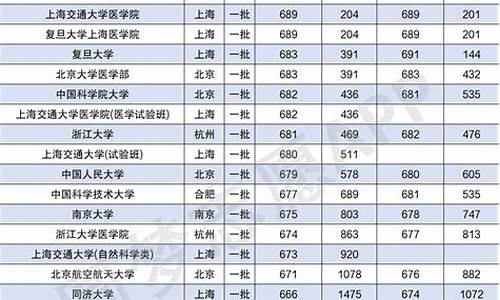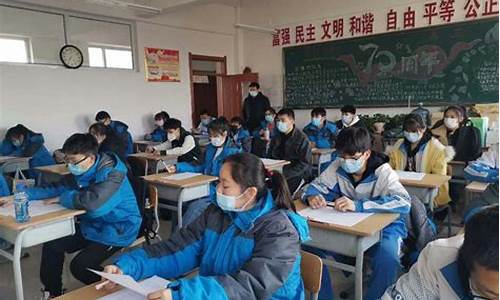您现在的位置是: 首页 > 教育改革 教育改革
2006年高考试卷_2006年高考试卷被盗
tamoadmin 2024-05-16 人已围观
简介2006年上海高考英语试卷2006年上海市普通高等学校春季招生考试英 语 试 卷第I卷(105分)I. Listening Comprehension.Part A Short ConversationsDirections: In part A, you will hear ten short conversations between two speakers. At t

2006年上海高考英语试卷
2006年上海市普通高等学校春季招生考试
英 语 试 卷
第I卷(105分)
I. Listening Comprehension.
Part A Short Conversations
Directions: In part A, you will hear ten short conversations between two speakers. At the end of each conversation, a question will be asked about what was said. The conversation and the questions will be spoken only once. After you hear a conversation and the question about it, read the four possible answers on your paper, and decide which one is the best answer to the question you have heard.
1. A. Fried chicken. B. Hamburgers. C. A pizza. D. Seafood.
2. A. A new job. B. A party. C. A new house. D. Some drinks.
3. A. She doesn't like reading. B. She's already read the book.
C. She is too busy to read the book. D. She's almost finished the book.
4. A. Frightening. B. Interesting. C. Enjoyable. D. Dull.
5. A. It is time that he won the scholarship. B. No one believes that he won the scholarship. C. He's surprised that he got the scholarship. D. He's glad to award the woman the scholarship.
6. A. The 4:40 bus. B. The 5:00 bus. C. The 5:20 bus. D. The 5:40 bus.
7. A. An airhostess. B. A cook. C. A waitress. D. A hotel manager.
8. A. At a police station. B. At a bank. C. At an employment agency. D. At a post office.
9. A. Someone helped him with the work. B. Someone has done the work for him. C. He didn't quite finish the work. D. He did the work alone.
10. A. He doesn't love jazz. B. He hasn't heard any music for a long time.
C. He'd prefer silence for a while. D. He'd like to listen to some jazz.
Part B Passages
Directions: In Part B, you will hear two short passages, and you will be asked three questions on each of the passages. The passages will be read twice, but the questions will be spoken only once. When you hear a question, read the four possible answers on your paper and decide which one would be the best answer to the question you have heard.
Questions 11 through 13 are based on the following passage.
11. A. 3 years. B. 4 years. C. 15 years. D.18 years.
12. A. A lawyer. B. A professor. C. An artist. D. An interpreter.
13. A. They've overcome their language problems. B. They overtook others in learning Russian. C. They still have problems speaking English. D. They worked in a restaurant to practise English.
Questions 14 through 16 are based on the following report.
14. A. The Spanish flu. B. The Asian flu. C. The Hong Kong flu. D. Bird flu.
15. A. In 1968. B. In the 21st century. C. In 1957. D. Over a century ago.
16. A. Bird flu viruses. B. Several kinds of flu. C. Causes of flu. D. Some most common viruses.
Part C Longer Conversations
Directions: In Part C, you will hear two longer conversations. The conversations will .be read twice. After you hear each conversation, you are required to fill in the numbered blanks with the information you have heard. Write your answers on your answer sheet.
Blanks 17 through 20 are based on the following conversation
KITCHEN ORDER FORM
TO (Supplier):
Standard items
Quantity
Notes
Cabbages
Four __17__
White
__18__
35 kilos
__19__
Bananas
__20__ kilos
Imported
Peaches
Not too good
Complete the form. Write ONE WORD for each answer
Blanks 21 through 24 are based on the following conversation
What did the man say about the chair?
It is the most reasonable and __21__.
What was the woman worried about?
The __22__ of the chair.
What did another customer do with these chairs?
He called to __23__.
How popular was the chair mentioned?
They have been selling like __24__.
Complete the form. Write NO MORE THAN THREE WORDS for each answer.
II. Grammar and Vocabulary
Directions: Beneath each of the following sentences there are four choices marked A, B, C and D. Choose the one answer that best completes the sentence.
25. More and more young people are fond ___ playing tennis nowadays.
A. on B. to C. in D. of
26. You know he is not going to let us leave early if we ___ get the work done.
A. can't B. may not C. shouldn't D. mustn't
27. Both sides have accused of breaking the contract ___.
A. another B. the other C. neither D. each
28. We ___ our new neighbors yet, so we don't know their names.
A. don't meet B. won't meet C. haven't met D. hadn't met
29. The parents suggested ___ in the hotel room but their kids were anxious to camp out during the trip.
A. sleep B. to sleep C. sleeping D. having slept
30. These shoes look very good. I wonder ___.
A. how much cost they are B. how much do they cost
C. how much they cost D. how much are they cost
31. Some experts think that language learning is much ___ for children as their tongues are more flexible.
A. easy B. easier C. easily D. more easily
32. ___ most of the earth’s surface is covered by water, fresh water is very rare and precious.
A. As B. Once C. If D. Although
33. Doris' success lies in the fact ___ she is co-operative and eager to learn from others.
A. which B. that C. when D. why
34. Just in front of our house ___ with a history of 1,000 years.
A. does a tall tree stand B. stands a tall tree
C. a tall tree is standing D. a tall tree stands
35. David said that it was because of his strong interest in literature ___ he chose the course.
A. that B. what C. why D. how
36. There are hundreds of visitors ___ in front of the Art Gallery to have a look at Van Gogh’s paintings.
A. waited B. to wait C. waiting D. wait
37. You can find whatever you need at the shopping centre, ___ is always busy at the weekend.
A. that B. where C. what D. which
38. ___ the employees' working efficiency, the supervisor will allow them to have a coffee break.
A. Improving B. To improve C. Having improved D. Improved
39. In the dream Peter saw himself ___ by a fierce wolf, and he woke suddenly with a start.
A. chased B. to be chased C. be chased D. having been chased
40. China has promised to revise its existing regulations and ___ new policies according to WTO requirements.
A. forming B. to form C. to be forming D. have formed
41. Put the ___ of your tongue against your upper teeth when you produce the sound.
A. tip B. top C. peak D. pole
42. Small cars are ___ of fuel, so they have more appeal for consumers.
A. free B. short C. typical D. economical
43. Sean's strong love for his country is ___ in his recently published poems.
A. relieved B. reflected C. responded D. recovered
44. The performer was waving his stick in the street and it ___ missed the child standing nearby.
A. narrowly B. nearly C. hardly D. closely
III. Cloze
Directions: For each blank in the following passages there are four words or phrases marked A, B, C and D. Fill in each blank with the word or phrase that best fits the context.
(A)
The term home schooling means educating children at home or in places other than a normal setting such as a public or private school. There are many reasons why parents choose home schooling for their children. Some parents are __45__ with the quality of education in the public schools. Others do not want their children to have to worry about “peer pressure”, or social pressure from friends. They say it may have a(n) __46__ effect on the child's studies. These parents __47__ this type of pressure will lead to bad behavior such as smoking, drinking alcohol, and taking drugs.
Bullying(欺负) from other students is another concern. Still other parents choose this type of __48__ for religious reasons. Whatever the __49__ may be, it is evident that more and more children are being taken out of normal schools every year. __50__, many questions have emerged, encouraging the debate over home schooling against public schooling.
What then is the future of education? Will this new model of schooling replace normal schools? Will computers and the Internet __51__ our classrooms and teachers? As the debate continues, so do the questions about what home schoolers are studying at home. How can parents ensure that their children are prepared __52__ for college? How are home schoolers assessed to make sure they are getting the same educational standards that school students must have?
Finally, there are questions regarding the children's emotional development. Are they too __53__ their fellow students? Are they __54__ the opportunity to get the social benefits of being in a large classroom of students? As with any debatable issue, the answers to
| (1)孩子感动于乌鸦如人类一般具有高昂的精神,乌鸦在这里如人类一般充分发挥了主观能动性,虽然失败,但志向和勇气可嘉。(4分) (2)①必须坚持一切从实际出发,实事求是。我们做事情要尊重物质运动的客观规律,从客观存在的事物出发,经过调查研究,找出事物本身固有的而不是臆造的规律性,以此作为我们行动的依据。乌鸦犯的一个大错误就在于它没有能够正确估量和对待自己,没有能够从自身实际出发而盲目模仿。②坚持一切从实际出发,实事求是,要把发挥主观能动性和尊重客观规律结合起来,把高度的革命热情同严谨踏实的科学态度结合起来。在这里我们最应该反对的就是夸大意识能动作用的唯意志主义,这也正是我们要从乌鸦的悲剧中得到的有益启示。(12分) |
| 略 |









